Alumni
- Gent, Craig
Course: PhD Interdisciplinary Studies, 2014-17
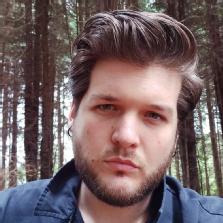
Thesis title: ‘The Politics of Algorithmic Management: Class Composition and Everyday Struggle in Distribution Work’
My doctoral research examined and theorised the politics of algorithmic management and the digitalisation of labour relations within logistics work. Fundamentally it tried to understand the shape of class struggle within the algorithmic workplace, for which it drew on the politically 'interested' methodologies of Italian operaismo. As an interdisciplinary research project, my thesis sat at the nexus of labour studies, media theory, organisation studies, the philosophy of technology and activist discourses (with elements of critical management studies, cybernetics, political economy, phenomenology, architecture and design). I am currently the Head of Operations at Novara Media, a not-for-profit independent media outlet specialising in political analysis, reportage and ideas. Day and night we produce multimedia content which aims to better understand a world in crisis and elevate voices and critical perspectives which are largely ignored by legacy media outlets.
I was already working for Novara Media before I joined the Centre for Interdisciplinary Methodologies, and whilst conducting my PhD work at the same time as then being the outlet’s Head of Articles was sometimes a bit of a juggling act (occasionally to the alarm of my fantastic supervisor, Nate Tkacz), it forced me to become excellent at both time and project management, which is crucial in my job today. Even more importantly, however, is that committing to an interdisciplinary mode of study and research allowed me to follow my intellectual curiosity with the nose of a journalist whilst forcing me to develop the investigative rigour of a genuinely interdisciplinary researcher. Academia often prefers not to make and break certain disciplinary connections, but doing so was fundamental to properly understanding the complicated phenomena my research was engaging with, namely the politics of workers, managers and softwarised media in a logistical environment. Perhaps unsurprisingly, both my PhD and my work with Novara Media have been similarly motivated by a deep commitment to the fate and fortunes of ordinary people. Studying at CIM gave me the analytical skills to get to the truth of any story, but, most importantly, it helped me discover the intellectual confidence to be tenacious when lines of inquiry appear closed-off, or when critical analyses need to be developed and advanced.
.
- Hind, Sam
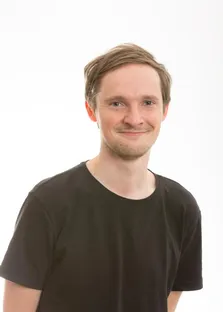
Course: PhD Interdisciplinary Studies, 2012 -16Thesis title: ‘Disruptive Cartographies: Manoeuvres, Risk and Navigation’
The thesis looked at a protest mapping app called Sukey that was used during student, and anti-austerity, demonstrations in London, UK in the early 2010s. In it, I argued that the app brought into being a ‘disruptive’ way of navigating during protests – unique in both the history of protest, and in critical cartography. Currently, I’m a Research Associate in the ‘Navigation in Online/Offline Spaces’ project in the SFB1187 Media of Cooperation, at the University of Siegen, Germany. In short, I’m continuing to work on questions of digital navigation, with a specific focus on connected and autonomous vehicles (CAVs). In this, I am continuing an interest in how navigational decisions are made, and the role of mapping and sensing technologies in mediating this decision-making.
My time at CIM was really eye-opening. I’d come from a (human) geography background, with little contact with the wonderful mix of fields and disciplines that make up CIM. I read more widely than I ever had up until that point, diving into work in media studies, STS, sociology, philosophy of technology, play/game studies etc. Many of the principle arguments I developed in the thesis were a direct result of recommendations in CIM reading groups, for instance. I also engaged with methodological matters more than I ever had done up until that point, finding my own way through the world of digital methods, inventive methods, and playful methods – really learning the value of hands-on workshops and activities. One of the real benefits from working in a small(er) research-oriented centre such as CIM, was a kind of centripetal force – knowing there was a shared interest in doing (as well as just thinking about) interdisciplinarity. I would have been a very different scholar without CIM, and I like to think I’m far better equipped to deal with questions of positionality and perspective than I was before it.
.
- Mollicchi, Silvia
Course: PhD in Interdisciplinary Studies, 2014- 18
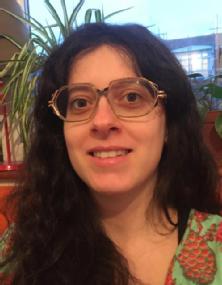
Thesis title: ‘A study of the notion of medium through the philosophy of the American metaphysician Wilfrid Sellars'.
My PhD thesis focused on the work of Wilfrid Sellars and its relation to materialism, as articulated in media theory and contemporary philosophies of nature. I now work at the Ada Lovelace Institute, where I research the social and ethical implications and epistemic dimensions of machine learning technologies in various contexts. More specifically, I contribute to research on the use of algorithmic decision-making (ADM) systems in local and central government, trying to understand how different functions of the state are changing due to their being mediated by data-intensive technologies.
At CIM, I learnt how to open up my research purview and embrace an interdisciplinary approach. My work benefited from generous review, which truly stimulated my curiosity, and from the experience of teaching on the graduate course.
.
- Saavedra, Paz
Course: PhD Interdisciplinary Studies, 2016-20

Thesis title: Understanding social time and inter-generational dynamics through technology
During my PhD at CIM, I explored the intersecting politics of care, knowledge and time. Particularly, I followed the reproduction of situated, embodied and inter-generational knowledge in traditional practices of care and healing in Ecuador. My research makes visible how the practices of women in caring for the land, bodies and territories have sustained possibilities of collective liberation and sovereignty throughout time, weaving meaningful connections in more than human worlds. An important finding of my research was the need to make visible how care is organised, recognised and delivered, to transform oppressive and inequitable relations affecting women and their communities. This has led me to work in community-based projects with collaborative methodologies that connect scientific and technical knowledge, on the one hand, and local knowledge, on the other, to disrupt and reimagine caring relations.
My time at CIM shaped me immensely because I was able to experience the richness of exploring and combining different disciplinary fields to better respond to complex social problems. My current work is based on a constant dialogue between science and technology studies, critical pedagogies and feminist theory. Moreover, during my fieldwork I had the opportunity to work and negotiate with different stakeholders, which gave me crucial tools to bridge scientific and non-scientific knowledge. I am convinced that this puts me in a unique position to be able to successfully work with academic and non-academic audiences in a world that needs these bridges more than ever to better respond to the current challenges we are facing.
.
- Velasco, Pablo
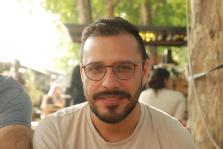 Course: PhD in Interdisciplinary Studies, 2013 - 17
Course: PhD in Interdisciplinary Studies, 2013 - 17Thesis title: 'The authority of the steam: power dynamics of digital production in the Bitcoin blockchain'
During my PhD studies at the Centre for Interdisciplinary Methodologies (CIM) I worked on a critical investigation of the Bitcoin currency and the operation of its technical structure, i.e. blockchain technology. My research addressed distinct notions of authority in Bitcoin, the geographical distribution of its infrastructural network, and the strategies for governance involved in its development as software. The work sits in between the disciplines of Media Theory, Software Studies, Political Theory, and Digital Methods, and makes use of qualitative and quantitative methods. After graduating from my PhD at CIM, I was an Early Career Fellow at the Institute of Advanced Study (IAS), also at Warwick. After that I became Assistant Professor at the University of Aarhus (Denmark). I have continued and expanded CIM’s interdisciplinary approach on my current research, which critically explores digital culture through their technical infrastructures and practices (in particular distributed systems and AI-related technology). My teaching practice also includes the implementation and reflection of Digital Methods, highly related with the research approach followed by CIM.
CIM is a research space concerned with the discussion and reflection of digital media, digital cultures, STS, and Internet Studies, among other interwoven subjects, with a special attention to the methodologies developed in these areas and a strong theoretical position. It provided me with a distinct interdisciplinary framework and buoyant close collaboration, and encouraged the development of an original and critical point of view towards research. Not only the staff and visitors were dedicated and knowledgable scholars, they also encouraged me to push my work to broader audiences and with an international scope. I had the opportunity to publish some of my early work, and aquire teaching experience among very talented colleagues and mentors. Also, the broad international collaboration and programmes for strengthening young scholars, provided by the University of Warwick, was crucial for my development as an academic. A great example is the IAS Early Career Fellowship programme, which allowed me to share my research in a highly transdisciplinary framework, and enhance the skills and portofolio for my upcoming career.
.
- Wark, Scott
PhD Interdisciplinary Studies, 2014-19
Thesis title: ‘Memes theory’
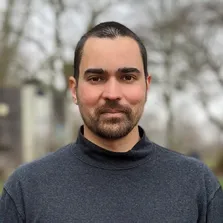
I came to CIM from Melbourne, Australia in 2014 to do my PhD, which was funded by a Chancellor’s International Scholarship. My thesis was about internet memes, kind of. It started out as a media-theoretical engagement with internet memes, but morphed into a much more complicated—or convoluted, depending on your taste!—theoretical enquiry into how we have and can conceptualise media in circulation. After submitting my PhD in 2018, I started a postdoctoral research position with a project called People Like You: Contemporary Figures of Personalisation. This project is funded by the Wellcome Trust under their collaborative medical humanities award scheme, which brings together people working in different disciplines on our around medical humanities issues. The project investigates personalisation, which is a huge topic in medicine, but from a much broader social and historical perspective. I work in the project’s Digital Culture stream, which is based at CIM, with Professor Celia Lury, who was also my thesis supervisor.
Besides leading directly to my current role, my time at CIM has quite profoundly shaped how I think about the world and do my research. My PhD thesis was nominally a media studies project, but it also drew heavily on methods and approaches other fields, including critical theory, the history and philosophy of science, and science and technology studies. It was as much about methods we might use to study media like internet memes as these media themselves, and spent a lot of time reflecting on the relationship between disciplines and knowledge. These are very CIM topics, and I don’t think I could have done the kind of research I ended up doing anywhere else. The CIM environment set me up to do the kind of work I do today: interdisciplinary, collaborative, and focused on problems and issues that don’t fit neat disciplinary boxes.
More broadly, I’ve always found CIM to be a very welcoming, open, and non-hierarchical place to be a student. A lot of the staff at the centre ended up being friends, which is perhaps the most meaningful endorsement one can give about any department!
.
